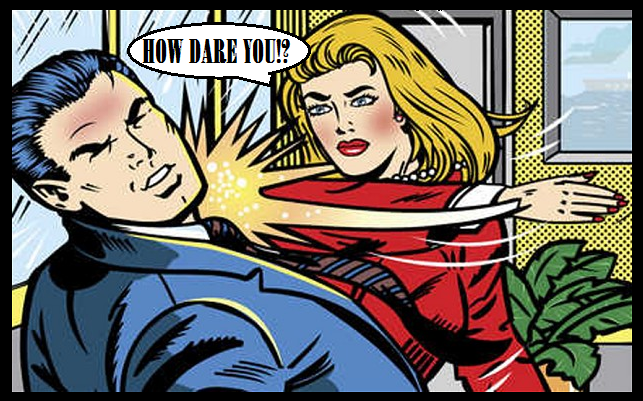Across the world, people are migrating from South to North, from the third-world to the first-world. From countries with backward laws, superstitions, and fundamentalist religions, to countries with secular governments and liberal politics. Why is this?
Every day now, we are treated to another article that slams the United States and Europe for being heartless bastards, because people are dying and being exploited as they try to migrate to these destinations. But what these articles don't bother to investigate is why now is migration such an issue today? Why are people flocking in droves from South to North, not just in the Americas but across the planet? What is going on?
In a way, it is like rats leaving a sinking ship - or people climbing into the fantail of the Titanic. People do what they have to do, to survive. And in many places in South and Central America, as well as Africa, survival is getting harder and harder to do. Countries there are ravaged by war, poverty, crime, and gang violence - as well as corrupt authoritarian governments that jail anyone who dares to question what is going on. Leaving is the only logical answer - we can't fault refugees for that.
But how did it get this way? Not overnight, for sure. And in both America and Europe, there is a lot of guilt going around, as part of the reason for this migration dates back to our colonial ambitions in those Southern countries. Every country in Europe - or nearly every one - had a doppleganger in Africa, or wanted to. France had Algeria, Italy invaded Ethiopia, Germany had German East Africa, West Africa, and South-West Africa (creativity in naming not being a German strong point). Great Britain had... well, just about everything else.
In the Americas - our territory - we told European powers to butt out, under the Monroe Doctrine. This didn't stop the Portuguese from colonizing Brazilia, or the British from claiming a number of Caribbean islands. Spain released its hold on much of Central America, including Mexico, only to see it invaded, albeit briefly, by the French. And then we stepped in, protecting "American Interests" in the form of the United Fruit Company and the Cavendish banana. And during the cold war, we didn't think it unwise to depose elected leaders - if they were too cozy with the Russians - and install brutal dictators of our own. Of course, the Russians did the same thing, in Cuba, and today in Venezuela. International politics is a brutal contact sport, not a polite game of chess.
So there is a lot of hang-wringing in Europe and in the USA that maybe we brought this on ourselves, through our colonial ambitions. The British brought their efficient bureaucracy to the Caribbean, Africa and India, but left behind a legacy of intolerant laws, including those targeting Gays and Lesbians. We criticize third-world countries for their intolerant views, but they are only enforcing the laws we left behind as Westerners. Similarly, in a lot of countries, particularly in Central America, we left behind the legacy of intolerant Western religions, particularly Catholicism.
One of the central tenets of Catholicism is that birth control is a no-no and that you should "go forth and multiply" - with the result being many families having a dozen children or more. In the era of high childhood mortality and short life expectancy, maybe this wasn't such a problem. But one of the other legacies we left behind in these former colonies was Western Medicine. Thanks to advances in modern medicine and the efforts of Jimmy Carter, people in these third-world countries are living longer and reproducing faster and faster - at a rate higher than the food supply and other resources can keep up.
The anti-vaxxer movement has yet to take hold in these countries, it seems. They aren't that stupid. And sadly, the people who are behind the anti-vaxxer movement themselves were vaccinated, so Darwin doesn't kick in here. Their kids, on the other hand, who didn't have a choice in the matter, may find themselves kicking off due to measles or whatever. But it may take a generation or two for this particular form of idiocy to be bred out of the genetic line.
So you end up with a perfect storm. In countries like Nicaragua, not only is it a crime to get an abortion, it is even a crime to miscarry! Countries with backward laws, backward religions (even Catholicism is ingrained with superstition in many of these countries), lack of education, corrupt governments, overpopulation, and dwindling resources. The result is like an explosion of rats in the New York sewer. This is not to say people breed like rats (no, you can't say that! You'd be shamed on the Internets!) but well, we are animals, and yes, given the chance, we too, will overrun our ecosystem until it is utterly depleted.
So people migrate. And where do you migrate to? Where there is money, food, shelter, laws, order, and good clean living. The question is not why anyone would migrate to the USA or Europe, but why they would stay behind? Only those in power - who have assets or belong to a gang - would bother to stay in such places.
Both the USA and Europe have generous immigration and refugee regulations. If you can make it to the border and claim refugee status, you are in - at least for a few years. But in the USA in particular, it is easy to fall off the radar, once you are in. And living illegally in the US is often better than living legally in your home country (or dying there).
So how do you stop this flow of migrants? In a way, it is like trying to stop the flow of ants into your home - or any other "invasive species". Again, you can shame me all you want (I don't give a fuck) but the point is (and you know this, deep down) that human beings are animals and thus behave like animals and are no better or worse than animals. That is, in part, why psychologists study animal behavior for insights into human behavior. Yes, Skinner put rats and dogs in his Skinner boxes - because their behavior is not much different than ours - we share a LOT of DNA, my friend!
With any infestation, you can try to stamp out the invaders as they come in, or go to the source and stop the flow there. Usually the latter approach is more effective. If you see ants in the kitchen, you can try stomping on them or spraying them, but you only stop the ants that are already there. The hive is still intact and the queen still pumping out baby ants and you've only addressed the symptom, not the problem. The next day, they are back.
The more effective solution is to attack the hive. Once the queen ant is gone, no more ants. You have to attack the problem from the supply-side.
This is not to say we need to annihilate Nicaragua in a nuclear holocaust, although that technically would "solve" the problem (and raise a host of others - sort of like burning down your house to get rids of bugs). Rather, we need to figure out why people are leaving these countries in the first place, and figure out how to make them more attractive to stay in so people are not incentivized to leave.
This is the humanitarian thing to do, too. So take your shaming elsewhere.
You can install cots for migrant children and give them toothpaste and happy meals. This doesn't solve the migration problem. People will still be exploited and die making the trek, even if the end result is made more comfortable. Oddly enough, making detention centers more livable would only serve as an attractant to many migrants. A jail in America or Europe is probably more comfortable than life in Nicaragua or Sudan. Three hots, a squat, and a cot.
And before you go off on migrant detention conditions, bear in mind that in the countries these folks came from no one is doing investigative reporting on jail conditions in their country. If you did, you'd be found dead in a ditch by the side of the road. We are appalled, and rightly so, by the treatment of these migrants, because in our country, this is considered an outrage, and not normal operating procedure. And as a result, conditions will change and improve over time - that much cannot be said for Mexican jails.
So how do we make South Sudan or Nicaragua attractive places to live, so that people don't want to leave? Aye, that's the rub. You'd have to change not just one or two things, but everything. Fundamentalist Islam or Catholicism, exhorting people to have as many kids as possible and professing intolerance (and inciting violence) needs to go. And that ain't about to happen, as people's grip on fundamentalist religion gets tighter and tighter, the further they slide down the economic ladder.
Next, you have to get rid of the corrupt governments that steal all the food aid and most of the government budget. Good luck with that. In half the cases, these are governments the West had a hand in installing, in the other half, the "revolutionary" government (propped up by the Soviet Union) that overthrew the first half. While the two-bit dictators we installed were often brutal and used police state tactics to remain in power, most were very Western in their views and very secular.
We decried the likes of Batista or the Shah for the use of secret police to keep the masses in line. But their successors? Not much better, it seems. This is not to say we should get back into the business of overthrowing governments (did we ever get out?) only that a power vacuum now exists that the West has lost the taste for that sort of thing. Vladimir Putin doesn't seem to have many qualms about it, nor do the Chinese, who are more than willing to offer e-z payment finance terms and payday loans to African and Asian governments. Just sign here on the dotted line...
So, in a way, migration is our fault, and then again, it isn't. The legions of people swimming ashore from Cuba aren't fleeing the tyranny of the Batista government (as many of their forebears were) but the tyranny of Communism. There are no good guys or bad guys in this, just human nature.
What is the solution, then? There probably isn't one, and that is a tough answer to swallow. It is like the mess with Israel and the Palestinians. You can propose as many mid-east peace plans as you want, none of them are likely to work. The Israelis are not going away - and the Palestinians know this, and vice-versa. A perpetual low-level conflict and endless suffering seems to be the new status quo. Maybe eventually, something will snap. Maybe.
So what's the point of this? If the answer is "no answer" why bother asking? Well, I think the wrong question is being asked - or no question is being asked at all. We seem obsessed with the politics of it all - how migrants are being treated, whether they can be granted refugee status, and whatnot. But you never see a reporter down in Nicaragua, asking pointed questions as to why people are leaving that country (and others as well) and why the government there isn't doing more to make life better for its inhabitants. The media doesn't want to ask hard questions, particularly in countries were reporters can go missing.
So they do the easy thing - bring the News at 5 truck to the border for some eye-candy shots of people in ragged clothes clinging to a fence, or appealingly talking to the camera through an interpreter. This is somehow all our fault, we are told, that these folks are victimized during their thousand-mile journey through Mexico. It's all our fault, that we don't post lifeguards on the Rio Grande to prevent drownings when people try to swim across.
It is sad. It is tragic - that is true. But feeling guilty about it isn't solving any of the problem. And not shipping beds to a detention center seems like an odd way of protesting, when kids will keep sleeping on the floor, as a result.














